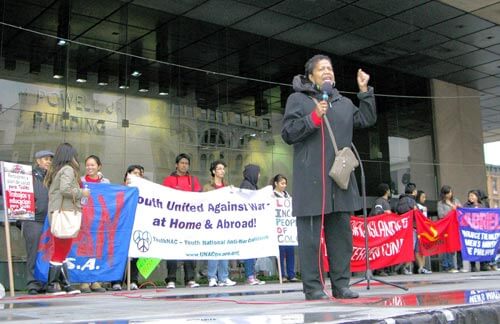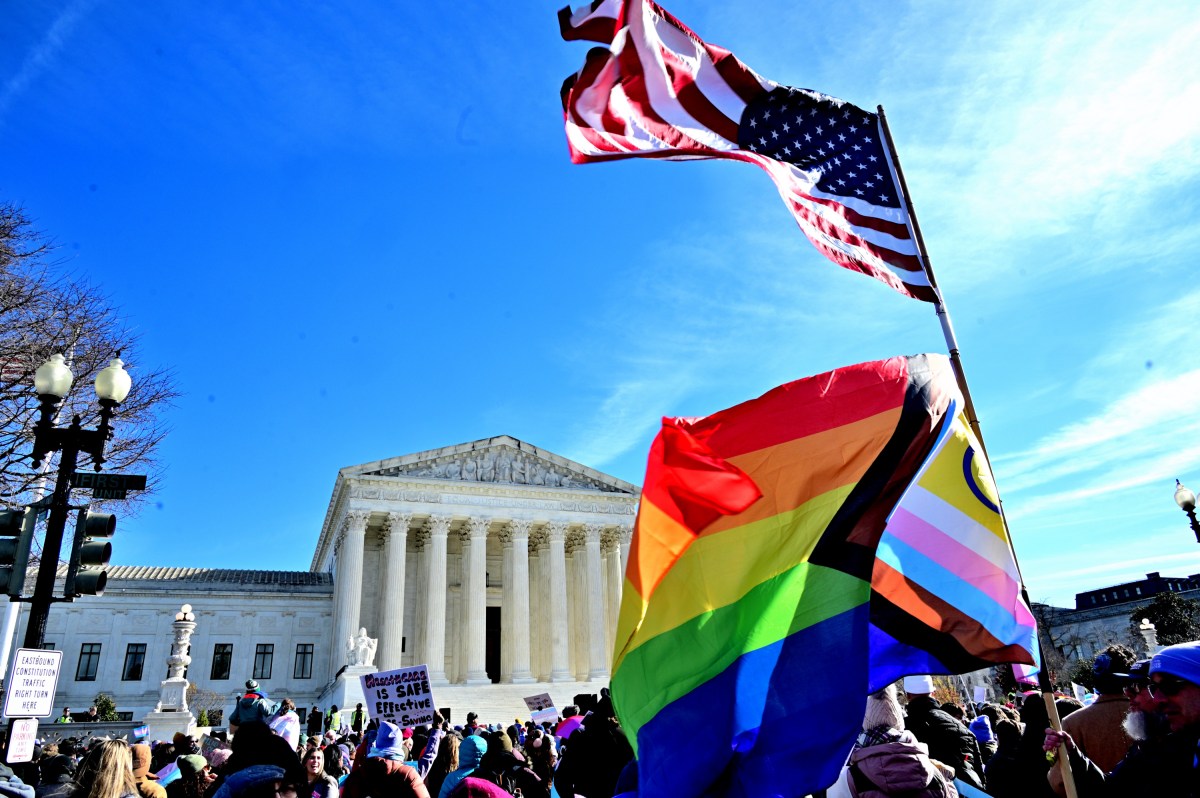Eleven years ago this month, the United States invaded Afghanistan, starting what has turned out to be not only America’s longest running war, but one of the longest wars in modern history.
On Sun., Oct. 7, a large crowd gathered in the Harlem State Office Building Plaza on 125th Street to voice their opposition to this and other U.S. wars both at home and abroad. This People’s Fight Back Resistance as it was dubbed, organized by the broad-based United National Anti-war Coalition (UNAC), was attended by diverse anti-war activists and members of Muslim and community groups and immigrant and labor organizations.
Defying the lousy weather, they came from all over the City as well as New Jersey, Connecticut, Philadelphia, and Washington, DC to speak out against this war that continues to take a massive human and fiscal toll. Thousands of U.S. soldiers have been wounded or killed, as have hundreds of thousands of innocent Afghan civilians, to the tune of half a trillion U.S. dollars.
This spirited speak-out was moderated by Nellie Bailey from Harlem Fights Back against War and Occupy Harlem. “The United States has numerous wars, occupations, and covert operations in countries around the world,” she said. “These wars represent death at home and abroad and have caused austerity measures that are miring millions of Americans in ever deepening poverty.”
Bailey continued, “These wars are an enormous burden on American taxpayers who are facing crumbling infrastructures, an inadequate healthcare system, lack of affordable housing, failed educational systems, an unemployment crisis, horrific mass incarceration, and literally daily killings and humiliations by police departments across the country. Blacks and Latinos are hit particularly hard. We must shift our priorities and demand a change.”
Noting with pleasure the large number of youth that had turned out for the event, Imam Al-Hajj Talib Abdur-Rashid, president of the Islamic Leadership Council of Metropolitan New York, said: “We must all unite and work together to end the massive injustice to our youth.”
He emphasized the importance of youth in activist movements and pointed out that they are the ones who end up on the firing lines – literally and figuratively – in the wars both at home and abroad.
It is the nation’s youth who are sent off to fight the wars; who can’t find good jobs, and who are most often racially profiled. During the rest of the speak-out, many young people expressed their opposition to such things as the militarization of police departments and the National Defense Authorization Act that allows indefinite military detention without charge or trial. Speakers also pointed out that while only 15 percent of the US population are Black, African Americans make up 60 percent of the 2.3 million incarcerated. Blacks and Latinos are also three times more likely to be searched during a traffic stop than whites, and African Americans are twice as likely to encounter physical brutality at the hands of police.
This Harlem speak-out was part of a nationally coordinated protest taking place in numerous cities throughout the country, including Los Angeles, Oakland, San Francisco, Olympia, WA, Salt Lake City, Minneapolis, Chicago, Columbus, OH, Boston, and Tallahassee, FL.

Photo by Donna Lamb



















